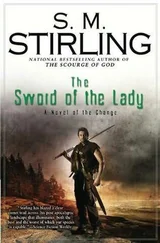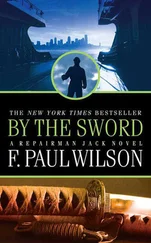Paul Christopher - The Sword of the Templars
Здесь есть возможность читать онлайн «Paul Christopher - The Sword of the Templars» весь текст электронной книги совершенно бесплатно (целиком полную версию без сокращений). В некоторых случаях можно слушать аудио, скачать через торрент в формате fb2 и присутствует краткое содержание. Жанр: Триллер, на английском языке. Описание произведения, (предисловие) а так же отзывы посетителей доступны на портале библиотеки ЛибКат.
- Название:The Sword of the Templars
- Автор:
- Жанр:
- Год:неизвестен
- ISBN:нет данных
- Рейтинг книги:3 / 5. Голосов: 1
-
Избранное:Добавить в избранное
- Отзывы:
-
Ваша оценка:
- 60
- 1
- 2
- 3
- 4
- 5
The Sword of the Templars: краткое содержание, описание и аннотация
Предлагаем к чтению аннотацию, описание, краткое содержание или предисловие (зависит от того, что написал сам автор книги «The Sword of the Templars»). Если вы не нашли необходимую информацию о книге — напишите в комментариях, мы постараемся отыскать её.
The Sword of the Templars — читать онлайн бесплатно полную книгу (весь текст) целиком
Ниже представлен текст книги, разбитый по страницам. Система сохранения места последней прочитанной страницы, позволяет с удобством читать онлайн бесплатно книгу «The Sword of the Templars», без необходимости каждый раз заново искать на чём Вы остановились. Поставьте закладку, и сможете в любой момент перейти на страницу, на которой закончили чтение.
Интервал:
Закладка:
“When did they come back?”
“Nineteen forty-six. Things were bad here then. No work for anyone. Everyone was Geld brauchen, penniless; the Kellermans were in Geld schwimmen: they had money. Lots of it. They went into business. Die Zugmaschinen. Tractors. People loved the Kellermans again.” He drank more Steinhдger. “Dem Geld verfallen sein,” he said philosophically and sighed.
“And you?”
The old man laughed and belched again. Behind the bar the waitress looked up at the sound.
“Frau Kellerman hired me to polish her boots,” said Drabeck. “Forty years I work for the family and then one day, phhft! Rudy is no good any more. Too old. Too much drink. Forty years, no pension. Nothing; der Kotzbrocken.”
“When we were there today we saw no evidence that Lutz Kellerman had ever existed. There was no mention of him at the museum, no pictures, nothing.”
Drabeck laughed again.
“Keineswegs!” he snorted. “Of course not! Hitler was a bad dream for Germany, a nightmare they would sooner forget; a nightmare I would forget if it was possible.” Drabeck poured more Steinhдger and drank it.
His nose was running now, and he wiped it on the sleeve of his jacket. His eyes were wet and filled with tears.
“Friedrichshafen made the Hindenburg only. Zeppelins, not death Raketen. Boys who yodel and play the alpenhorn. Girls who make Apfelstrudel and fat babies. It is a different world now; there is no room in history for Konzentrationslager or men like Obergruppenfьhrer Lutz Kellerman.”
“Surely the son has not forgotten his father,” said Holliday.
“No,” Drabeck said. “He remembers him well enough. He hides it.”
“Hides what?” Peggy said.
“His father’s things, Gegenstдnde mit Nostalgiewert-I don’t know the word in English for this.”
Nostalgiewert. Nostalgia?
“Memorabilia?”
Drabeck shrugged.
“Egal welche,” he grunted. Whatever.
“Medals, uniforms, that kind of thing,” prompted Holliday.
“Ja, sure,” answered Drabeck. His eyes were shifting, and he was beginning to look uncomfortable. Talking about himself and the past was fine; talking about the master’s secrets was something else.
“So he has a shrine to his father somewhere?” Peggy said, pushing. Drabeck looked down into his empty glass, his lips pursing.
“Ja,” he said slowly.
Holliday caught Peggy’s eye. He made a little gesture with his thumb and forefinger, rubbing them back and forth. She nodded and dug into her bag. She pulled out a pale green hundred euro note.
She folded it in half and slid it across the table, nudging Drabeck’s glass. There was a second of hesitation, and then the old man’s fingers delicately pulled the bill toward the edge of the table and it disappeared into his pocket.
“Where?” Holliday said flatly.
There was another second’s hesitation. Drabeck licked his lips, and then he spoke.
“He has a place…” the old man began.
14
“We should have brought a gun,” said Peggy. They were lying on the edge of the bluff that stood over Schloss Kellerman on the broad, sweeping meadow below. It was dusk, and the first security lights were coming on around the complex of buildings. Through his newly purchased binoculars Holliday could see the distinctive pink glow of high pressure mercury vapor lamps; in full dark the Schloss would be lit up as brightly as a Hollywood premiere.
“Guns are stupid,” said Holliday, putting down the binoculars. “You wind up getting shot.”
“Funny sentiment coming from an old soldier.”
“Old soldiers don’t get to be old by overestimating the value of firepower,” answered Holliday. “Don’t carry a gun unless you’re willing to kill someone with it, which I am not willing to do at the moment.”
Peggy frowned.
“I’m not one of your first-year students at the Point, Doc. I don’t need a lecture. I just thought it might be nice to have some backup if this guy Kellerman was responsible for murdering Professor Carr-Harris and burning down Grandpa’s house.”
“We don’t know that for sure,” said Holliday.
“It’s a pretty good assumption. We wouldn’t be here otherwise.”
“Assumptions without evidence are the kind of things that start wars,” said Holliday. “I repeat, guns are stupid.”
“You’re lecturing again, Doc.”
“Comes with the territory.”
He scanned the grounds of the Schloss again. Nothing was moving. An hour ago a van had pulled up with the evening shift of guards. Eight armed, uniformed men, all tall, fit, young, and definitely Aryan. Axel Kellerman was clearly not an equal opportunity employer. The van had picked up the eight men from the earlier shift and driven off.
Twenty minutes later a tall, dark-haired man in an expensive suit, wearing a green Tyrolean hat complete with boar’s brush decoration, had climbed into a big, black Mercedes sedan and driven off toward Friedrichshafen. It could have been Axel Kellerman, but it was hard to tell for sure. The parking lot of the Schloss was empty.
Holliday swung the glasses to the left. At the far end of the bluff, two hundred yards away and partially screened by a stand of pine trees, the ruins of the old castle rose in the gathering darkness like an ancient megalith. The promontory was barred by the original curtain wall, or what was left of it: a twelve-foot-high mound of crumbling stone and rubble.
Behind the wall, standing like an immense broken tooth, were the remains of the keep, the stone fortress that had once stood in the center of the castle, protected by a moat and drawbridge, the last line of defense for the old Count Kellerman-Pinzgau.
Peggy took a shiny camera the size of a cigarette pack out of her bag and took a few quick exposures of the ruins.
“What are you doing?” Holliday asked.
“Taking establishing shots.”
“We’re snooping, not making a documentary.”
“Snooping, documentary, what do I care? I’m taking pictures, that’s what I do, Doc.”
She aimed the camera at Holliday and clicked off a shot.
“No flash,” he said. “Nothing will come out,” he said.
“Don’t be silly,” answered Peggy. “This thing will take pictures by starlight. Welcome to the digital age, old man.”
Holliday picked up the binoculars again and turned them toward the Schloss. Still no movement. The only sound was the light, warm wind sifting through the surrounding trees.
“All right,” he said quietly. “It’s all clear. Keep low so your silhouette doesn’t break the horizon; we wouldn’t want some guard on a smoke break seeing you. Head for the barbican.”
“The what?”
“The gatehouse in the wall, that big square thing.”
“Gotcha.”
“Go.”
She went. Thirty seconds later he followed, running hard, crouching low.
They reached the old gatehouse in the wall, then paused. The courtyard beyond was dark and empty. Nothing moved. In the far distance Holliday could hear the moaning rumble of a passing train.
“Maybe Drabeck was feeding us a load of bull,” said Peggy. “Maybe this is all a waste of time.”
“Nervous?” Holliday asked.
“I’m feeling just a wee bit criminal.”
“Barely that,” said Holliday. “Trespassing maybe.”
“So far.”
“So far.”
They waited for a moment more, catching their breath.
“Now what?” Peggy asked, bent low, panting, hands on knees.
“More running,” said Holliday. “The second barbican in front of the moat. From there we cross the bridge into the keep.”
“You first this time,” said Peggy. “Age before beauty.”
“You wish,” said Holliday. He eased himself forward for a few feet and looked out into the courtyard. A few yards away he could see a regular outline of stonework that was all that remained of the original Great Hall, the lord of the manor’s residence in peacetime. A little beyond that was a circular pile of stones that had probably once been the castle well, and beyond that, thirty feet on a side and rising eighty feet or more into the night sky, was the keep.
Читать дальшеИнтервал:
Закладка:
Похожие книги на «The Sword of the Templars»
Представляем Вашему вниманию похожие книги на «The Sword of the Templars» списком для выбора. Мы отобрали схожую по названию и смыслу литературу в надежде предоставить читателям больше вариантов отыскать новые, интересные, ещё непрочитанные произведения.
Обсуждение, отзывы о книге «The Sword of the Templars» и просто собственные мнения читателей. Оставьте ваши комментарии, напишите, что Вы думаете о произведении, его смысле или главных героях. Укажите что конкретно понравилось, а что нет, и почему Вы так считаете.











